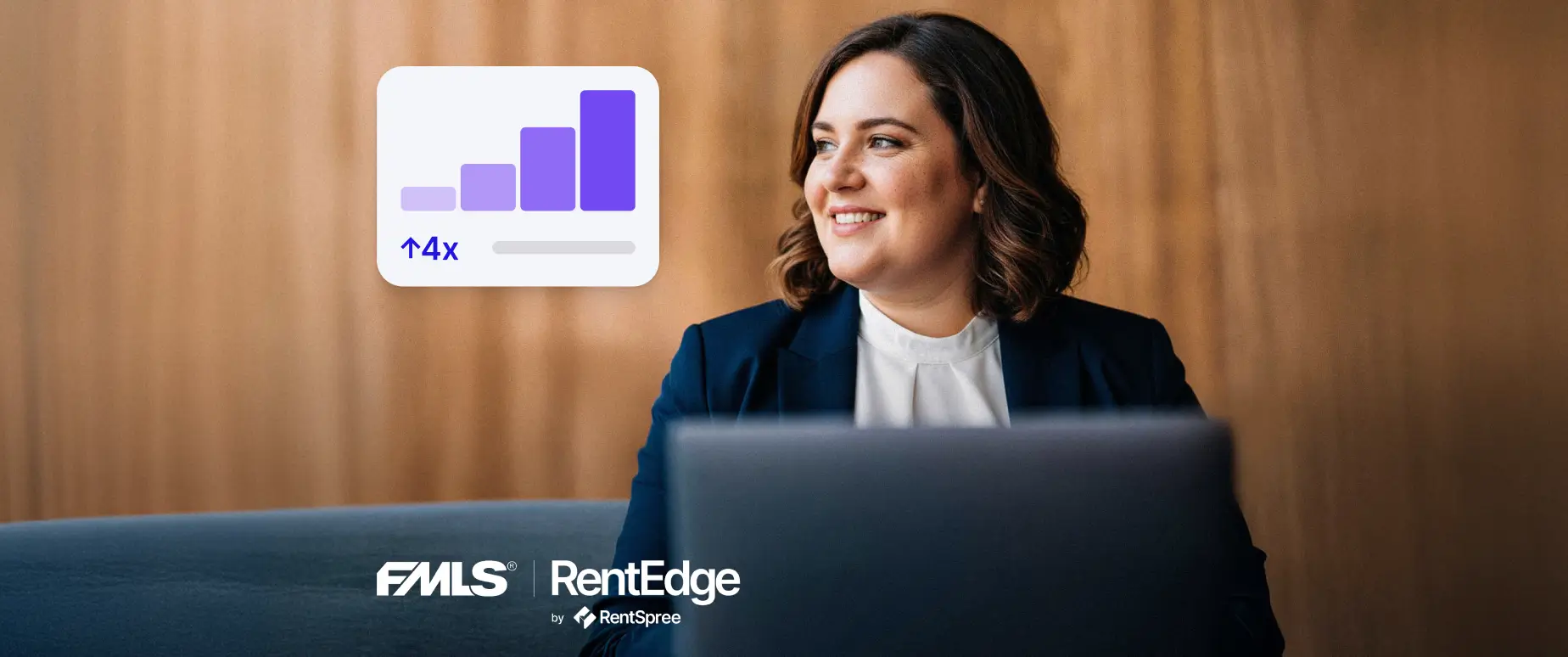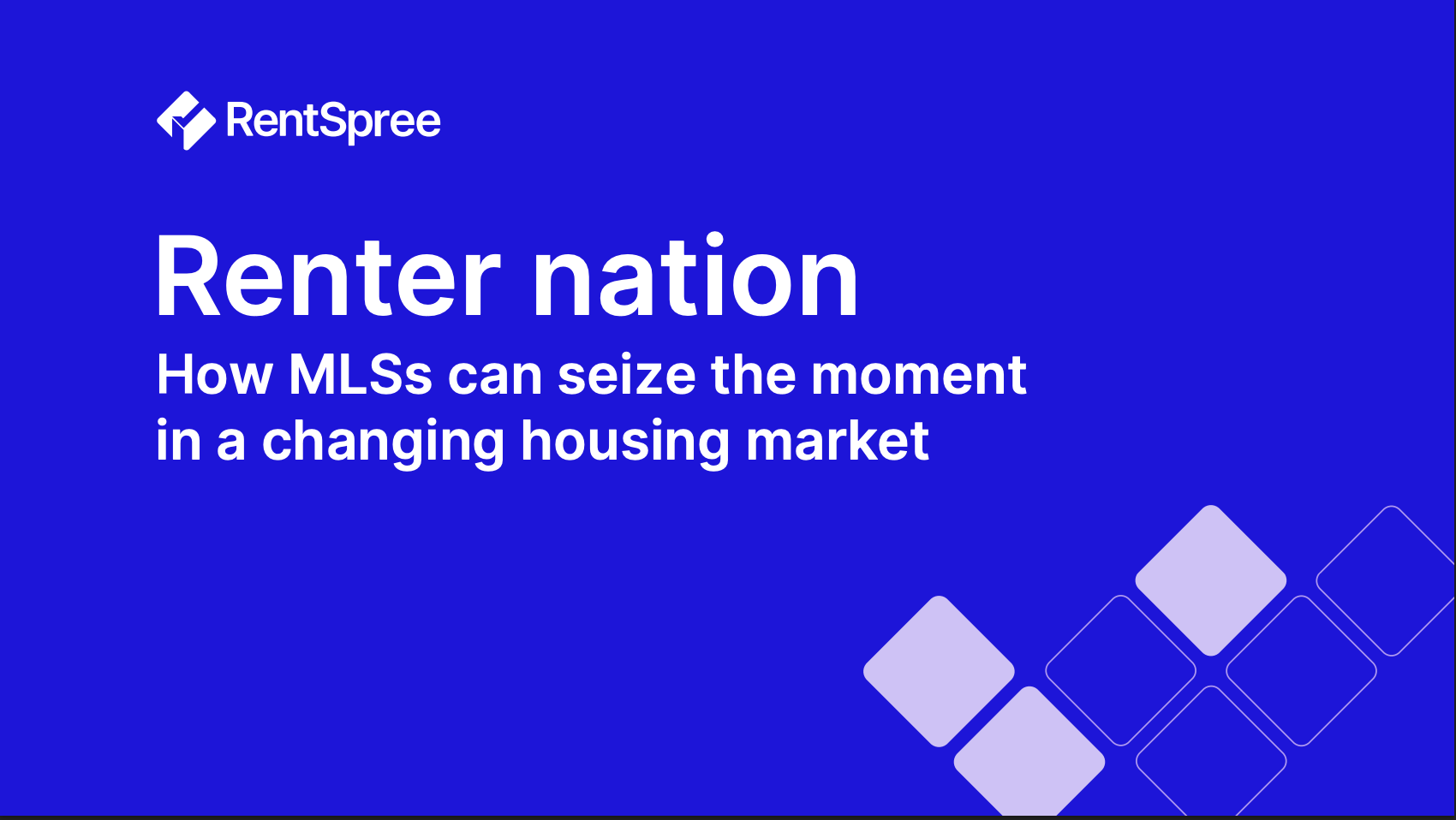Is it better to rent or buy? That’s the question plaguing many Americans as they consider their living situation and rethink whether or not becoming a homeowner is in their future. In this article, we’ll explore how agents can help their renter clients plan for homeownership, no matter where they are in their home buying journey.
With the ever evolving housing market, your clients may be pondering a question plaguing most Americans these days: is it better to rent or buy?
The answer to this question is far from straightforward, largely due to the multitude of factors that influence this decision. For many Americans, owning a home represents a goal that’s become increasingly out of reach. While 74% of adults view homeownership as an important part of the American dream, more than half of renters feel like they'll never be able to afford a home.
This is where you can step in to help guide your clients as they navigate the home buying journey—even if they’re starting out as renters. As an agent, you bring a level of expertise, experience, and industry connections that renters can greatly benefit from while also supporting your own real estate lead generation goals. Regardless if your client is ready to buy or is still weighing their options, here’s how you can help renters begin to plan for a future where homeownership is a real possibility.
Familiarize yourself with today’s renter landscape
Before you dive right into trying to convert your renter clients into homebuyers, it helps to understand the rental landscape and what factors may be keeping your clients in the renting stage. Trying to convince a renter to buy when they’re not ready can quickly backfire and sour your relationship with that client.
Data shows renters make up about 36% of American households with the over half of renters being 45 years old age. What life stage a person is in also plays a big part in their decision to either continue renting or seriously consider the for-sale market. Another factor to consider is the majority of renters don’t have children and, thanks to rising home prices, are likely to stay in the rental market a little bit longer than in previous years.
Maintaining a pulse on the current rental market can help you better identify the right time to broach the subject of homeownership with your clients and when to back off. Given that two-thirds of renters renewed their lease in 2022, there may be other economic or personal factors at play keeping renters in their apartments. Remember: not every renter client is going to be a prime candidate for home ownership and some may be content to rent forever. These are important considerations to keep in mind when reviewing your real estate leads and identifying who may be ready to take the next step in becoming a homeowner.
What factors influence when to buy vs rent?
Becoming a homeowner is more than a big financial investment—it’s a commitment that takes time, resources, and can have a significant impact on your client’s lifestyle. As an agent, educating your clients on if it’s better to rent or buy starts with understanding their motivations, challenges, and what resources you can provide them to achieve their homeownership goals.
When deciding whether to rent or buy, here are several factors to evaluate if your clients are ready to have a conversation about buying a home:
- Affordability—Perhaps the biggest consideration for any renter is the financial cost associated with renting or buying a home and experts anticipate home prices to increase 2.8% in 2024. According to Zillow, affordability tops all other concerns with 83% of renters saying finding a home in their budget is extremely important to them. When working with your client, getting a sense of what budget you’re working with can signal to you if someone is realistically able to afford a home in the next few years.
- Mortgage rates—For buyers looking to purchase a home using a loan, mortgage rates are going to significantly impact whether someone continues to rent or buy. While mortgage rates fell below 7% at the start of 2024,, what constitutes a ‘good rate’ depends largely on your client’s personal finances such as credit score, down payment, and consistency of income. As an agent, you can educate your client on what mortgage rate they might expect to see from a lender based on the financial information they’ve provided you.
- Lifestyle preferences—Another factor influencing home buyers is what they prioritize in their lifestyle. Someone with a remote job, for example, is less constrained by location than someone who commutes into the office every day and may prefer to rent because of the flexibility it affords them. Similarly, young families may prefer owning a home over renting so they can put down roots in a city of their preference. You may want to ask your clients what their long-term goals are to gauge whether or not they want to rent for the foreseeable future or if buying a home makes sense for their plans.
- Supply and demand—Insufficient housing inventory can prevent renters from finding the home of their dreams. While there are reasons to be optimistic housing supply will increase in 2024, construction fell 4.3% in December 2023 and total housing inventory was down 11.5% from November. Low supply during a time of high demand also results in higher sale prices, leaving many renters feeling like they’ve been priced out of the buying market.
While this list is not exhaustive, it can give you an idea of what expertise and guidance your renter client is looking at you to bring to the table when they are ready to talk about moving from renting to buying.
To convert renters into buyers, timing is everything
In your very first meeting with a renter client, take the time to get to know what they’re looking for in a home. Do they plan on renting for the foreseeable future or is home ownership their eventual goal? What cities or location preferences do they have in mind when browsing real estate listings? What kind of budget are they working with and how much home can they realistically afford? In addition to understanding your client’s rental budget, consider asking for supplemental documents including pay stubs and how much they can comfortably afford for a potential down payment.
With this information, you can segment your renter clients by their level of interest in owning a home so you can reach out with the appropriate marketing pitch at the right time. Consider adding clients who would eventually like to own a home to a drip email campaign where you can share tips for first-time buyers and market insights. These clients may also be more receptive to receiving information on things like how to calculate your debt-to-income ratio for a mortgage, so they know what they need to do to start saving up for a home. Set reminders to reach back out to clients when their lease is up for renewal so you can reintroduce yourself and see if they’d like to continue renting or are ready to explore the for-sale market. And for clients who may not be in a position to seriously think about buying, you can offer tools like Credit Builder and resources that teach them how to improve their finances to set themselves up for these conversations down the road.
Learning about your client’s hopes and aspirations can help you better serve them at this stage of their home journey while also keeping the door to future opportunities open. A positive rental experience, for example, can leave a lasting impression on clients who are more likely to remember you when they are ready to buy a home. Likewise, even if your renter client doesn’t have plans to own a home they may be able to refer you to others in their network who are in need of your services.
Buying a home can be within reach
When it comes to buying a home, there are numerous factors that any first-time buyer has to take into consideration. There are the external factors like the macroeconomy and supply and demand to account for, as well as individual elements like one’s personal financial health.
In spite of how overwhelming buying a home can be, agents can help guide their renter clients and show them the roadmap to achieve their homeownership goals. Take the time to understand what your clients are looking for and nurture that relationship so it lasts long after the ink has dried on their lease agreement. With a real estate lead generation strategy in place and clear understanding of your client’s expectations and aspirations, you can position yourself to be at the right place at the right time to convert your renter clients into homeowners.
Don’t just leave your real estate lead generation strategy to chance. Learn how a real estate customer relationship management software can help you keep your leads organized to increase your chance of closing your next deal.
Screen and lease with confidence
Find qualified tenants faster than ever with results you can trust.


Related posts
Want to make rentals easier to manage?
Save time on marketing, screening, and payments. Join over 2 million agents, landlords, and renters using RentSpree.





.jpg)

